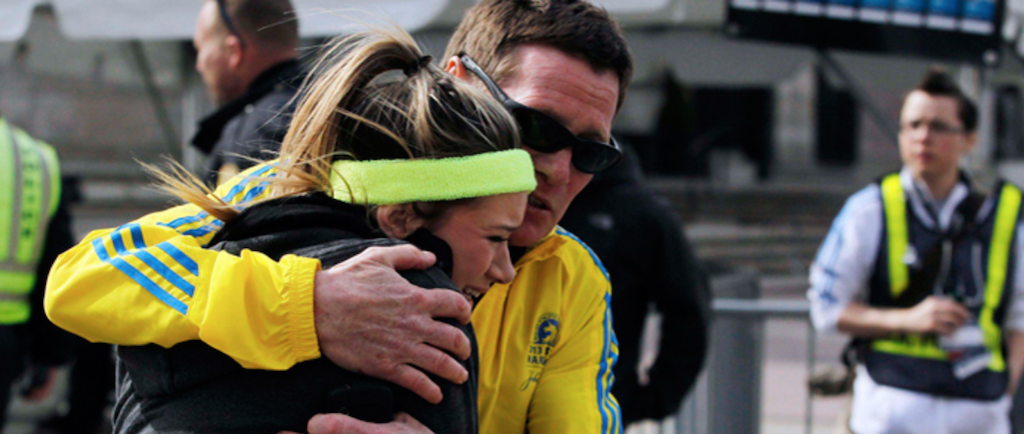Editor’s note: Following the terrible tragedy in Las Vegas, the worst mass-shooting in modern U.S. history, Behind the Badge OC thought it would be useful to post some materials from the Trauma Intervention Program, a non-profit whose 100-some trained volunteers in Orange County work with police, fire departments and hospitals to provide emotional and practical support to people immediately after a tragedy.
“There are many people who will be wondering: How do I support those affected?” said Wayne Fortin, founder of TIP, which works with most O.C. law enforcement and fire service agencies, as well as hospitals. TIP is celebrating its 22nd year in Orange County. The organization now has 15 affiliates serving over 250 cities nationwide.
Some information:
Emotional First Aid
Emotional First Aid refers to a set of life skills used by lay citizens and emergency responders to provide the support a person who is emotionally shocked needs immediately following a crisis event.
The Horrible Hours
To really understand the importance of Emotional First Aid, you need to understand what we call The Horrible Hours.
The Horrible Hours are those first few hours immediately following a tragic event. There are five aspects of these Horrible Hours which make it the terrible time that it is, and that make it important for you to be there as soon as possible.
— The Horrible Hours involve a huge loss in a person’s life. It may be the loss of a spouse of 50 years, the loss of a child or the loss of a home. We experience many losses as we go through our daily lives, but a tragic event can be described as the BIG ONE.
— The Horrible Hours are something that the survivor never planned for. He was taken totally by surprise and therefore is totally unprepared for.
— Survivors usually don’t experience their Horrible Hours in a nice, quiet and familiar environment. Rather, the environment is often chaotic. It may be in a noisy emergency department, or on the side of a freeway or in the person’s home with emergency personnel and friends and family coming and going.
— Often, the person experiencing the Horrible Hours is alone. The survivor’s support system has not gotten there yet. When you arrive, it’s important to convey “you are not alone now.”
— The person experiencing the Horrible Hours is often asked to make dreadful decisions …“What mortuary should I use to bury my dead child?”…“Should I donate his organs?”…“How should I tell my child his father killed himself?” Unfortunately, the person faced with these dreadful decisions does not have the experience, the information, or the clear thinking to make them. These horrible situations leave survivors devastated. Each person reacts differently, but it’s very common for survivors to be shocked, confused, shaking, sobbing, angry, guilty and questioning. But the word which best characterizes survivors is lost.
The 5 Emotional First Aid Skills
Reach Out
Provide a caring presence. Don’t try to “fix” the survivor or help him “look at the bright side.” Get by the survivor’s side at his level, listen, lightly touch, and gently ask: “Can you tell me what happened?” Don’t hesitate to say “I’m so sorry.”
Protect
Serve as a protector. If necessary, protect the survivor from unhelpful helpers, from the media, from carnage, or from the consequences of the survivor’s own forgetful or impulsive behavior.
Reassure
Be an information advocate. Acknowledge the survivor’s need for information: “I know what you really want right now is information about…” Ask emergency responders to provide the survivor the information he is requesting.
Organize
Help the survivor develop a simple plan that will guide him through the horrible hours ahead of him. Focus the survivor on “what is most important now?” Encourage him to “take one step at a time.”
Reinforce
Listen for the survivor’s source of strength. The source of strength may be family, God, an animal, a piece of clothing or a positive thought. Once you have identified the survivor’s source of strength do what you can to help him hold onto it. Help the survivor do the special personal things he may want to do. For example, the survivor may want a lock of hair from the deceased, or he may want to reminisce about the life he had together with the deceased.
Click here for an article on how to talk to your children about tragic events
Common Reactions to Traumatic Events
It’s important to realize as a helper that everyone reacts differently to tragic events. An individual’s reaction will be affected by a number of factor including the survivor’s personal life, the survivor’s physical and mental health, the suddenness of the tragic event, and the timing of the tragic event.
However, there are reactions to tragic events that are common and that you are likely to see when helping a survivor. These reactions include:
— Shock and disbelief
— Guilt
— Anger/blaming
— Numbness
— Denial of the enormity of the event
— Confusion
— Paralysis
— Inability to make decisions
— Helplessness
— Fear
— Urgent need for information
Implications for helpers
If your hear the survivor saying something like, “What’s the matter with me?” you can say, “What you are experiencing is very normal under these circumstances.”
If you hear one survivor judging how another survivor is reaction, you can say, “Everyone grieves differently.”
Coping After a Tragedy — Dealing with Loss
Loss from a tragedy or traumatic event can take many forms. It might involve the loss of a loved one, a home, or a pet. It could involve a life-changing injury or illness. It might involve the loss of a sense of safety and security when a crime has been committed.
Although our information generally reflects the death of a loved one, your emotional responses and the recommendations regarding your health and wellbeing can apply to all categories of traumatic loss.
— The first response to your loss may be emotional shock. You may feel numb and like the situation is unreal. You may have moments of disbelief that your loved one is really gone. Others may want you to quickly “accept reality and get on with your life.” Don’t be hurried. There is no timetable. Accepting the reality of your loss is usually a slow and gradual process.
— Be involved in burial and funeral planning. Take the time to explore the many options available to you. Plan a service that is meaningful and special to you and your family. There are no hard and fast rules.
— Delay major decisions. Until you have recovered from the initial turmoil
following a death, major decisions should be delayed.
— Accept your feelings. You may find yourself experiencing a “roller coaster” of feelings for weeks and months after the loss. Don’t try to escape these feelings. They are normal. Going through these emotions is a part of the healing process. These emotions might include:
Anger: You may blame yourself, a family member, the deceased, or
God for the loss (“Why me?”)
Guilt: “If only I had done…”
Depression: You may feel unable to perform even basic daily tasks. You may feel “Why bother?”
— Keep a journal. It may help to write down how you are feeling. Rereading it can help you see the healing that is taking place.
— Maintain a healthy lifestyle. Try to maintain a quiet and safe routine. Eat regular healthy meals, take your medications, and make sure to get enough exercise and sleep.
— Seek Help From Others:
Friends and Family. Talking to those outside of the immediate family may help you express your feelings without blaming those closest to you.
Professional Help: Seek professional help if despair and worthlessness persist, if your family relationships are deteriorating, or if you continue to blame yourself for what happened.
Support Groups: There are support groups where you can receive support from others who have lost a loved one in similar circumstances.
— Nurture Yourself. On a daily basis, do something good for yourself. Exercise can be very helpful. Maintain simple routines.
— Hope and Healing. It may take time and work, but you can survive a terrible loss. You will always have memories of the loss of a loved one, but you can live your life in the future with joy and perhaps with a new understanding and purpose.
For more information, visit whentragedystrikes.org
 Behind the Badge
Behind the Badge




